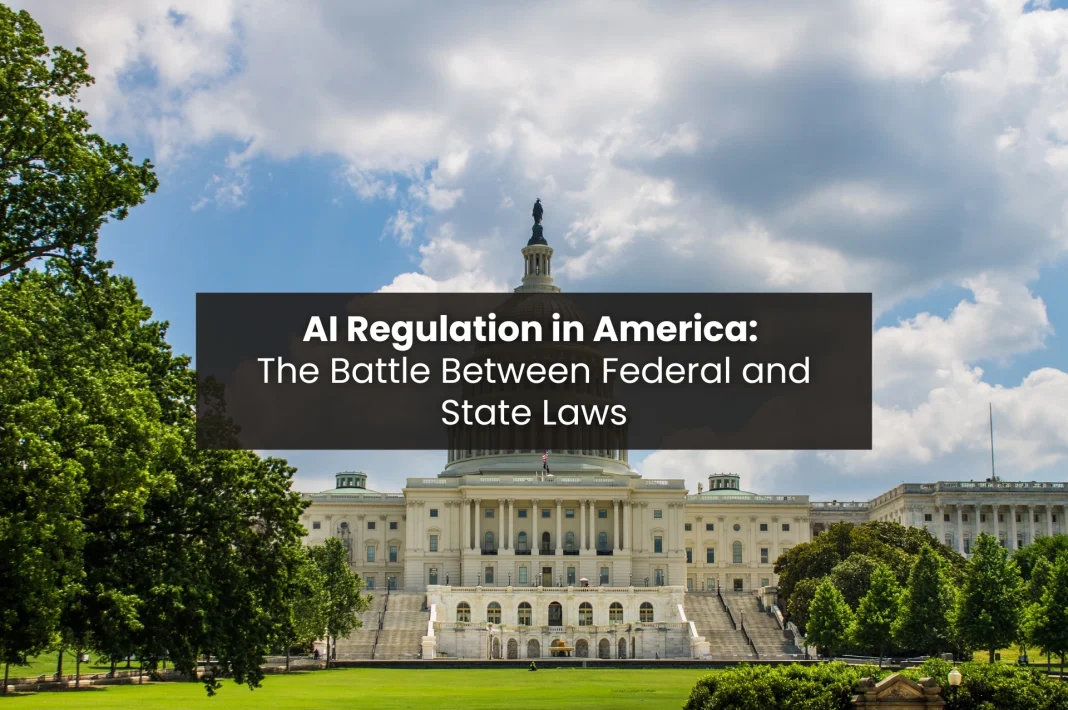The Big Tech Wants States Out of AI Regulation for 10 years.
Critics are calling this a power grab.
The biggest players in tech- Amazon, Microsoft, Google and Meta have proposed for the biggest action of all time. They want all the 50 states of U.S not to make any AI related laws for the next 10 years. This move reignites the debate over Federal vs State laws as Big Tech tries to take control of how America regulates AI.
Yes, you read that right.
This proposal has been quietly tucked into a broader federal budget bill which is championed by former President Trump and has been already passed in the House. So, what’s left? It should be still passed by the senate. Where as of now red flags are starting to rise about the same.
What Big Tech Wants and Why
With the help of their trade group INCOMPAS, these tech groups are aiming to push the federal moratorium on any AI rule that is likely to be passed until the year 2035. What’s their argument behind this? They simply state that if every state is given the power to establish their own laws to regulate AI there’s going to be a lot of confusion. And as a result of the same, it’s going to slow down innovation, hurt businesses, and weaken America’s global competitiveness, especially against China. These arguments just show the broader influence strategies of the biggest tech companies, which you can explore more here.
Their core message is:
We need one set of national rules to help AI thrive.
But obviously, critics don’t see this the same way.
“A Dangerous Overreach,” Say Lawmakers and Watchdogs

Lawmakers and several consumer protection groups are not in support of this proposal, and are not even buying the things the tech groups have to say. In their opinion, this proposal is a way the tech giants are trying to escape regulations, oversight and accountability. Furthermore, they also believe that they are trying to shut down local government’s ability to protect people from AI harms.
What exactly will happen if this moratorium becomes a law? It will invalidate 500 bills that have been passed by the states or those which are currently under consideration. And these laws are trying to tackle:
- Bias found in hiring algorithm
- Deepfake abuse
- Facial recognition surveillance
- Use of AI in criminal justice and healthcare
Additionally, some states have already started passing some laws, and if this moratorium passes, all of it will be wiped off overnight.
This Isn’t a Party-Line Fight
Do you know what makes this interesting? This fight isn’t between democrats and republicans. It’s true that tech giants have almost every time gotten support from pro-business republicans, but this time some of them are pushing back. Senator Josh Hawley and Senator Marsha Blackburn are of the opinion that the federal government shouldn’t block states from acting.
And surprisingly Representative Marjorie Taylor Greene was initially in favor of this opinion, but now has flipped. She now says that the states have a right to regulate AI however they see fit. Her stance on AI has evolved in some other high-profile moments too, including a recent clash involving Grok AI and political misinformation.
Even Microsoft’s Own Scientist Is Against It
As reported by The Guardian, Microsoft’s own Chief Scientific Officer, Dr. Eric Horvitz, is against the ban and believes that this ban will “hold us back”. He firmly believes that the result of preventing states from forming AI regulations and policy is going to slow down responsible development.
Furthermore, various small businesses and startups have voiced the same. They believe that this ban or federal only approach would cement big tech’s dominance. As a result of which it will leave less room for innovation, experimentation, and accountability for the smaller tech firms.
States Still Charging Ahead
Despite the looming threat of Trump’s plan of ban of the US states from AI regulation, states have not backed down.
- In Texas, have passed a bill and it is currently sitting on the governor’s desk. The bill aims to boost data privacy and limit AI bias.
- In Colorado and Illinois, it has already been established that laws require transparency in AI systems, notably in hiring processes.
- In states like California and New York, legislators have been on the move to make more bills that are going to address risks like deepfakes, surveillance, and algorithmic discrimination.
Who Has The Final Word
The Senate has the final word and holds the power. If the senators pass the bill with the moratorium intact, the Big Tech will secure a big win. And if they remove it, the states will continue to enjoy the regulatory authority and will protect citizens from unchecked use of AI.
This debate raises a critical question:
Who governs AI in the U.S.?
Is it Washington? Will states control it? Or will the giant companies that are building the tech control it?
What the Senate decides will shape the future of the U.S for the next decade or even more.
